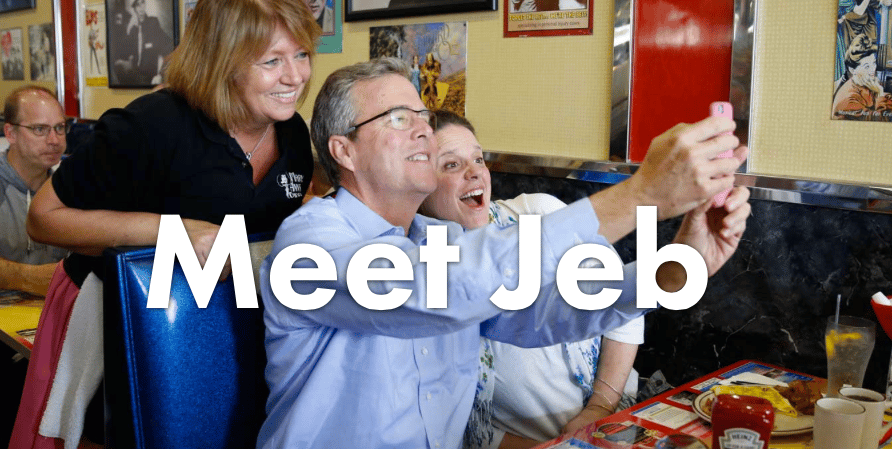
Third time’s the charm: The tale of the third Bush
Image from Jeb Bush’s official campaign website, jeb2016.com.
Christian Segers, Staff Writer
People either love the Bush family or they hate them. Seldom is there any in between. The third in a political dynasty, Jeb Bush hopes his potential is seen past the varying connotations surrounding his family’s history and that he be given the chance to prove his mettle.
Presidential legacies are what shape the public opinion of America’s supreme leaders for years to come. For Bush, his lineage serves as a constant reminder of the legacy the Bush family has left on U.S. culture and the impact the candidate believes he can make to further his family’s standing in the nation’s history.
As former Florida governor., Bush has extensive experience in the geopolitical landscape and has worked “tirelessly” to create an environment conducive to both economical and social growth. However, Bush’s rise to power is anything but picture perfect. Bush originally ran to become the Floridian leader in 1994, but lost marginally to the democratic candidate, Lawton Chiles.
Admittedly, the loss hit Bush the hardest of anything prior to, but he refused to give up on the ideology that he could help facilitate a better tomorrow for families within the state. In the election cycle of 1998, Bush would come out victorious and proceed to make noticeable changes in how the state was run.
“When I became governor…We defended and protected the most vulnerable in our society,” said Bush. “I have always believed that as a nation, we reveal our values by how we govern those moments when life is most vulnerable. When we see life not yet born, we should welcome it with love.”
It was this mentality that convinced the people of Florida to accept Bush and what many believe will land him a seat in the Oval Office.
Bush sees America’s current economical plight as an astronomical problem and one which must be addressed on the first day of office.
He believes that it is imperative for the current president to understand the issues at hand.
“If you really want to solve a problem, take the time to understand it first and get ready to roll up your sleeves,” he said.
In his tenure as governor, Bush cut taxes on an annual basis, in large part by axing 13,000 government positions which continued to eat taxpayer revenue. Additionally, under his leadership, 80,000 small businesses were started in his eight years in office.
By cutting needless government spending and identifying with the middle class to cut taxes, Bush was received favorably by his fellow constituents. By the end of his service, Florida boasted over 1.3 million new jobs created. Bush hopes these numbers assist his presidential bid.
Lisa VanRiper, faculty member and director of the honors program at North Greenville University, said,”First, Bush is a policy thinker. Second, he boasted a conservative record from his time in Florida. Third, he has name recognition as governor in his own right and in association with his father and brother. Finally, he has the great ability to raise money.”
According to an article by “Time Magazine”, Bush has used the Super Pac christened Right to Rise, to fund a TV advertising campaign that eclipses all other candidates both in the Democratic and Republican parties. The aforementioned expenditures surpass $7.3 million in ads, as reported by NBC News.
However, in recent polls conducted by public policy polling, Bush ranks in fourth place with 10 percent of the popular vote, a far cry from poll numbers closer to when he joined the presidential race in early July.
“The same things that were working for him are now working against him. This is the year of the outsider, because voters are jaded,”said VanRiper.
The question remains: In an election season where three of the top five polling GOP candidates have held no prior political office, will Bush’s record be able to overtake the ill conceived notion that all establishment candidates are to be feared? Or will he, like his old protégé, Marco Rubio, rise once again to the upper tier of the Republican pack? In the 2016 primaries, anything can happen.

